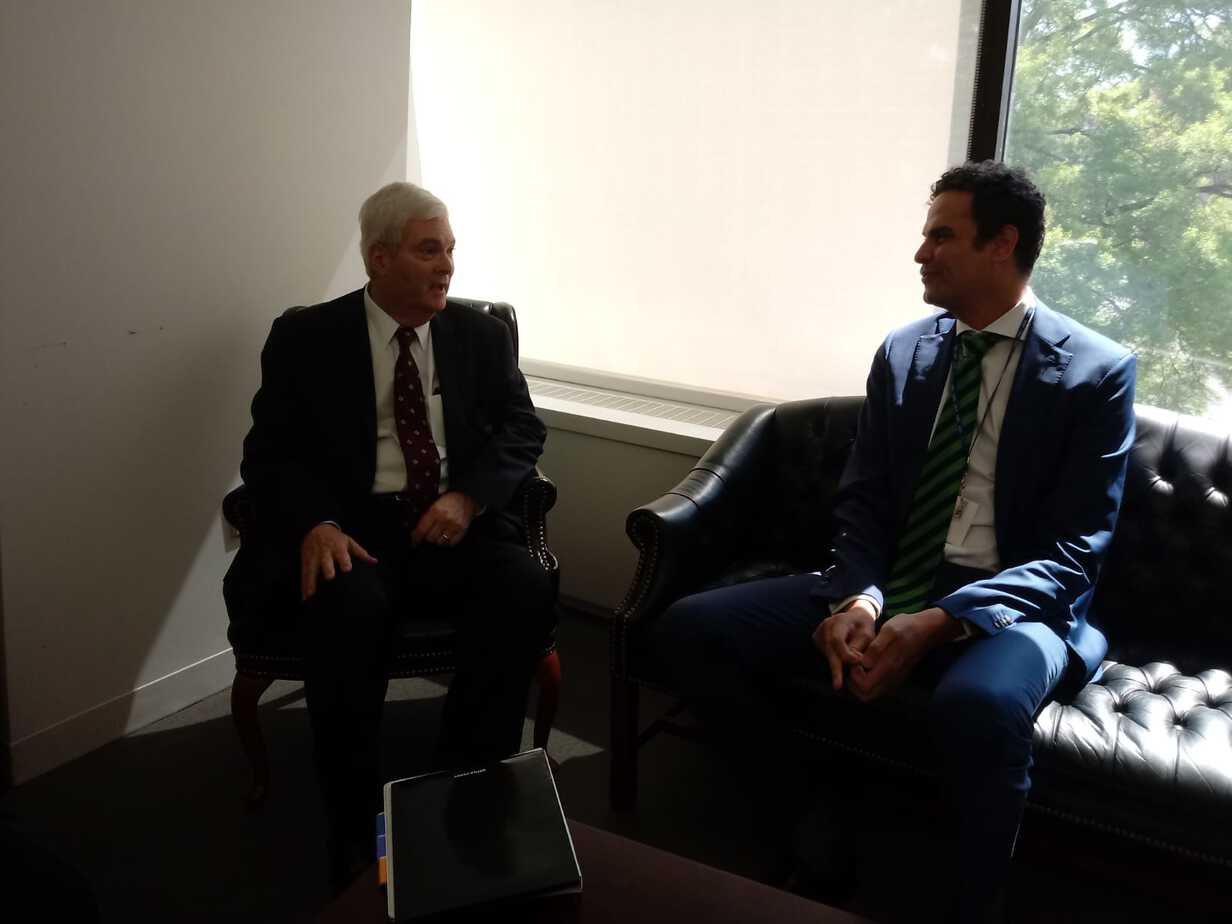Costa Rica’s Minister of Foreign Affairs, Manuel Ventura Robles, met with the Inter-American Commission on Human Rights (IACHR) this week in Washington D.C. to discuss several human rights issues.
Ventura and IACHR executive secretary Paulo Abrao reviewed Costa Rica’s priorities in the ongoing crises in Nicaragua and Venezuela, according to a statement from the Foreign Ministry.
“[Ventura] said that some of the main issues for Costa Rica are the liberation of all political prisoners in Nicaragua, especially the journalist Lucía Pineda, and in Venezuela, the entry of humanitarian aid,” read the Foreign Ministry’s statement.
The United Nations has estimated that some 60,000 people have fled Nicaragua since last April, when large anti-government protests erupted in that nation’s capital. Hundreds have died and have been imprisoned in Nicaragua, the UN says, and Costa Rica has received the vast majority of those who have left.
Costa Rica is also an active member of the Lima Group, which has for months asserted the reelection of Nicolás Maduro in Venezuela was invalid. Costa Rica has joined at least 50 other countries in recognizing Juan Guaidó as Venezuela’s president and has accepted diplomatic credentials from María Faria, the ambassador appointed by the opposition leader.
The Foreign Ministry also confirmed that IACHR representatives will visit Costa Rica in May to assess the country’s compliance with precautionary measures following the murder of indigenous leader Sergio Rojas in March.
Following Rojas’s death, the IACHR instructed Costa Rica to enact measures in favor of members of the Teribe and Bribri indigenous peoples in Salitre, Puntarenas. In that declaration, the IACHR criticized Costa Rica for its “failure to identify and effectively demarcate indigenous land” and said it has a duty to “adopt any measures necessary to protect beneficiaries’ lives and personal integrity.”
“We salute the State’s response and its decision to create a special unit to investigate the death of indigenous leader Sergio Rojas,” Commissioner Antonia Urrejola, the IACHR’s Rapporteur on the Rights of Indigenous Peoples, said at the time. “This crime must be investigated in a serious, timely, thorough, independent and impartial manner, and its masterminds and perpetrators must be punished.
“In particular, the State must adopt a differentiated ethnic-racial approach when investigating, trying and punishing those crimes and when providing reparations for them.”
The Costa Rican government had issued an invitation to the IACHR to validate the country’s efforts to protect indigenous communities.
This story was made possible thanks to The Tico Times 5% Club. If only 5 percent of our readers donated at least $5 a month, we’d have our operating costs covered and could focus on bringing you more original reporting from around Costa Rica. We work hard to keep our reporting independent and groundbreaking, but we can only do it with your help. Join The Tico Times 5% Club and help make stories like this one possible.






